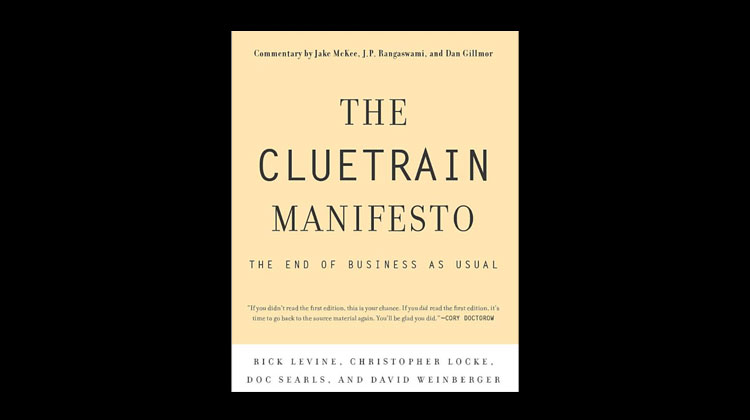More than twenty years later, The Cluetrain Manifesto remains as valid as the day it was published. The book was written by four wise men (Rick Levine, Christopher Locke, Doc Searls, and David Weinberger) and began as an online discussion in 1999 on the impact the Internet could have on the world of business. It ended up as 95 theses, reminding me of the 95 theses that Martin Luther nailed to the door of a German cathedral in 1517 (although I am not sure this was the intention!)

Although it was first published in 2000, I do believe The Cluetrain Manifesto is still spot-on at its core: It’s about being a real human being and having real conversations with real people. The virtual wall that separates today’s typical online experience from a real-world experience must come down. Social Media platforms, such as Facebook and LinkedIn have contributed a lot to creating a more natural real-person experience, although I believe we still have some way to go.
Could it be that the Metaverse is the destination of the Cluetrain? Even though ROI is often difficult to measure, you need to look beyond this and get a glimpse of where the Internet is taking us. LinkedIn, Facebook, Twitter, TikTok, etc. are not destinations – they are simply stops on the way to the Metaverse.
The Cluetrain Manifesto: The End of Business as Usual was launched in January 2000 and immediately burned right off the charts. A 10th Anniversary edition became available (in book form and on Kindle). In case you have not read The Cluetrain Manifesto, or it’s been a while since you last read it, you can read the 95 Theses of the Cluetrain Manifesto for free.
